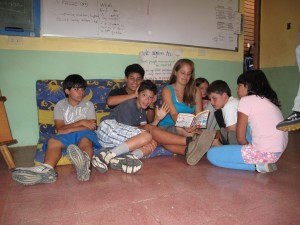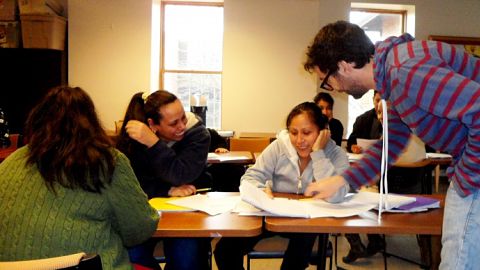Costa Rica Teaching News – It was my first day of training for my first ever ESL teaching position. I was listening to the academic manager describe the school’s methodology, the student demographic and why the materials they used were the best in town. After concluding the generic pitch to sell the seven of us on why we should want to work for this school, the instructor said something – when describing what we needed to do in the classroom – that I will never forget: fake it ‘till you make it.
 As is the theme when discussing teaching English in Costa Rica, the teachers subject to the majority of the focus are teachers new to the ESL world. The focus of my last column (https://www.costaricantimes.com/are-you-overqualified-to-teach-english-in-costa-rica/20007) was on just this. The reason the Costa Rican ESL market is saturated with either inexperienced teachers or older teachers simply looking to enjoy life abroad – and using teaching as a means to pay the rent – is because the job prospects are not enticing for those with superior qualifications.
As is the theme when discussing teaching English in Costa Rica, the teachers subject to the majority of the focus are teachers new to the ESL world. The focus of my last column (https://www.costaricantimes.com/are-you-overqualified-to-teach-english-in-costa-rica/20007) was on just this. The reason the Costa Rican ESL market is saturated with either inexperienced teachers or older teachers simply looking to enjoy life abroad – and using teaching as a means to pay the rent – is because the job prospects are not enticing for those with superior qualifications.
As a result, academic managers and TEFL and TESOL trainers accentuate the most basic of teaching skills in their trainings in order to best prepare their pupils before entrusting them with a live classroom.
Fake it ‘till you make it.
I thought he was joking when he said it; he was not.
While the words used in the message seem strange to new employees wanting desperately to make a great first impression in a hypercompetitive market, the idea is dead on.
Image prevails in Latin America. What occurs behind the curtain of a language school is best left as a secret. If an academic manager tells you “you don’t want to know” – believe him. Even the best teacher can be spit out and requested to not be assigned to a particular group again based on wardrobe alone.
Often times the best advice for any teacher in Latin America is to talk the talk – even if you can’t walk the walk.
In many cases looking and acting the part is as important – sometimes more so – as one’s skill as an educator. There is a certain appearance associated with an ESL teacher in Costa Rica and students can be quite fickle if you don’t appear to fit that preconceived image. Numerous teachers I used to work with – who were excellent, fully capable and qualified – did not find the kind of success teaching here as you would have expected.
It may be cliché, but the one chance you get at a first impression is even more prevalent in Latin America.
With this notion we find the inherent irony that is entrenched in the ESL teaching market in Costa Rica. In order to make it in this market you need to look, act and conduct professional classes as if you were a teacher stout on experience. This would be the expectation from the same language school that is paying you an hourly rate that would, under normal circumstances, not represent that type of return.
‘Making it’ in the Costa Rican teaching market means gaining student acceptance. Language institutes are client based and if a group or a client is keen on a certain teacher, you will be married to that group. Similarly if the opposite proves to be true, there will be no hesitation in reassigning you elsewhere.
If you are an inexperienced ESL teacher in Costa Rica, the best advice is: don’t let anyone find out.
If you want more information about teaching English in Costa Rica or getting your TEFL or TESOL certificate in Costa Rica feel free to contact Andrew at the Global TESOL College or email andrew@globaltesolcostarica.com
Originally from Toronto, Canada, Woodbury is the academic director of Global TESOL College Costa Rica , a contributor to radio program This Week in Costa Rica (http://thisweekincostarica.com/), and an independent writer based in Costa Rica.

